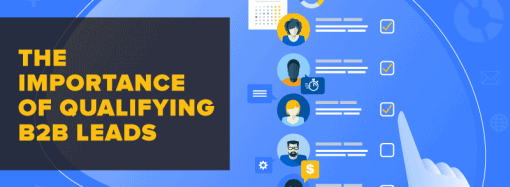In the dynamic landscape of today’s marketing, Artificial Intelligence (AI) is the game-changer that’s redefining how brands engage with their audience. As we navigate through 2023, the integration of AI in marketing is not just a buzzword – it’s a necessity for those seeking to secure a competitive edge. From hyper-personalization to real-time data analysis,
In the dynamic landscape of today’s marketing, Artificial Intelligence (AI) is the game-changer that’s redefining how brands engage with their audience. As we navigate through 2023, the integration of AI in marketing is not just a buzzword – it’s a necessity for those seeking to secure a competitive edge. From hyper-personalization to real-time data analysis, AI in marketing is transforming traditional tactics and empowering brands to connect in more meaningful and efficient ways.
In this all-encompassing guide, we delve into the groundbreaking role of AI in marketing. We’ll uncover how marketers can harness its potential to reshape strategies, make data-driven decisions, and ultimately propel their businesses into the future. Whether you are a marketing veteran or just starting to explore the digital realm, this guide will provide you with invaluable insights into leveraging AI for maximum impact in your marketing campaigns.
The Growing Influence of AI in Marketing
When it comes to innovation, AI in marketing is leading the charge. The proliferation of AI technologies has given rise to unprecedented opportunities for marketers around the globe. But what is it about AI that’s causing such a stir in the marketing world?
For starters, AI’s ability to sift through enormous data sets and extract actionable insights is unparalleled. This data-driven approach has flung the doors wide open to enhanced targeting, personalization, and efficiency in marketing strategies.
Additionally, AI in marketing is playing a pivotal role in customer experience. Through chatbots, for instance, businesses are ensuring 24/7 customer service without the added labor costs. AI’s predictive analytics, on the other hand, is akin to having a crystal ball that helps marketers foresee customer needs and tailor campaigns accordingly.
Let’s also not forget the profound impact of AI on content creation and curation. Through natural language processing and machine learning algorithms, AI tools are enabling the creation of content that’s not only engaging but also deeply resonant with target audiences.
But AI’s influence doesn’t end here. The global AI market is burgeoning and is expected to hit nearly 100 billion U.S. dollars by 2030 (source: https://www.statista.com/statistics/1365145/artificial-intelligence-market-size/ ). Such explosive growth is a testament to how integral AI in marketing has become.
In a nutshell, AI is not just another tool in a marketer’s kit – it is the engine driving modern marketing into a new era of precision, personalization, and success. In this section, we’ll delve into the pivotal ways AI is leaving its mark on the marketing world and explore the following aspects:
1. Hyper-Personalization
One of the most significant advantages offered by AI in marketing is the ability to create highly personalized customer experiences. By analyzing vast amounts of data on individual preferences and behavior patterns, AI-powered tools enable marketers to tailor content, offers, and interactions to resonate with each user more effectively.
2. Predictive Analytics
AI-driven algorithms can process and analyze historical data to predict customer demand, behavior, and trends. This allows marketers to optimize their strategies by anticipating future needs and preferences, resulting in more effective campaigns and better resource allocation.
3. Content Creation and Curation
AI is increasingly being used to generate, optimize, and recommend content tailored to individual users. With AI-assisted content creation and curation, marketers can produce engaging and relevant content that drives higher engagement, conversions, and customer satisfaction.
4. Chatbots and Conversational AI
AI-powered chatbots and conversational agents have become a crucial component of customer service, sales, and engagement strategies. By providing personalized, round-the-clock support and assistance, these tools can improve customer satisfaction, streamline processes, and reduce operational costs.
5. Sentiment Analysis
AI algorithms can process and interpret large volumes of user-generated content to assess customer sentiment and emotions towards brands. This valuable insight enables marketers to optimize their communication strategies and tailor their messaging to resonate with their audience’s emotions and preferences.
Having explored the foundational ways in which AI is reshaping the marketing landscape, it’s clear that the integration of AI in marketing strategies is not just an enhancement but a paradigm shift.
As AI technologies continue to mature, what can marketers expect as we move deeper into 2023? The answer lies in staying agile and informed. The trends that emerge are the natural progression of the influence we’ve examined.
This is where understanding the pulse of innovation becomes critical. Let’s pivot from the foundational aspects and gaze into the future. In the next section, we’ll delve into the top 10 AI marketing trends for 2023. These trends are set to further accelerate the transformative impact of AI in marketing, offering new avenues and tools for brands to connect with their audiences in groundbreaking ways.
Top 10 AI Marketing Trends for 2023
As the marketing landscape evolves at a breakneck pace, Artificial Intelligence continues to be the driving force behind cutting-edge trends that are redefining the industry. 2023 is a pivotal year where we witness AI in marketing take giant leaps.
In this section, we’ll unravel the top 10 AI marketing trends that every marketer should have on their radar this year. Buckle up as we explore:
1. Enhanced Customer Profiling
AI can analyze vast amounts of data to gain insights into customer preferences and behavior patterns. This enables marketers to create detailed customer profiles, segment audiences effectively, and tailor marketing campaigns for increased relevance and engagement.
2-Real-Time Personalization
By harnessing AI, marketers can deliver personalized content, offers, and interactions in real-time, based on user behavior and context. This allows businesses to engage with customers at the right time, with the right message, resulting in higher conversion rates and customer satisfaction.
3. Next-Generation Chatbots
As AI technology continues to advance, chatbots and conversational agents will become more sophisticated, capable of handling complex queries and providing personalized, human-like interactions.
4. AI-Driven Content Optimization
AI-powered tools can analyze and optimize content for maximum relevance, engagement, and search engine performance. By leveraging machine learning algorithms, marketers can identify content opportunities, generate compelling headlines, and improve overall content quality.
5. Voice Search and Voice-Driven Commerce
With the growing popularity of voice assistants like Siri, Alexa, and Google Assistant, marketers must adapt their strategies to accommodate voice search and voice-driven commerce. This includes optimizing content for voice queries, creating voice-activated ads, and developing voice shopping experiences.
6. AI-Powered Social Media Management
AI tools can help automate social media monitoring, advertising, and content curation, enabling marketers to manage multiple social media channels more efficiently. By analyzing user behavior and preferences, AI can also recommend the most effective content and strategies for each platform.
7. Advanced CRM Integration
AI-enhanced CRM systems can provide businesses with better customer insights, improved sales forecasting, and personalized recommendations for upselling and cross-selling. This allows marketers to streamline their processes, better understand customer needs, and boost revenue.
8. Programmatic Advertising
AI enables real-time bidding and the automation of ad buying, allowing marketers to target specific user segments with greater precision and efficiency. This results in more effective campaigns, reduced costs, and higher returns on ad spend.
9. Omnichannel Marketing Automation
AI-powered solutions can collect, analyze, and synchronize customer data from various touchpoints, creating seamless, omnichannel experiences. This allows marketers to deliver consistent and personalized interactions across all channels, resulting in higher customer satisfaction and loyalty.
10. Ethical and Privacy Considerations
As AI becomes increasingly integrated into marketing strategies, businesses must be mindful of the ethical and privacy implications of using AI. This includes ensuring transparency, conducting privacy impact assessments, and adhering to relevant laws and regulations.
As we have seen, 2023 is ripe with AI-driven innovations that are changing the face of marketing. These trends offer a glimpse into the remarkable capabilities that AI brings to the table.
However, knowing the trends is only half the battle; the key to true success lies in integrating these AI advancements into your marketing strategy effectively. This is where theory meets practice. As a marketer, how do you harness the power of AI in marketing to not just keep pace but to lead in this rapidly evolving landscape? How do you ensure that AI serves as a strategic ally in achieving your business goals?
In the following section, “Integrating AI into Your Marketing Strategy”, we will provide a roadmap and best practices for embedding AI technologies into your marketing initiatives. Whether you are looking to enhance customer profiling, utilize advanced chatbots, or navigate the ethical dimensions of AI, this section will equip you with the tools and insights needed to translate AI trends into actionable and impactful strategies.
Integrating AI into Your Marketing Strategy
To make the most of the transformative potential of AI in marketing, consider the following best practices:
- Define your goals and areas where AI can provide the most value.
- Evaluate available AI solutions and choose the ones that best fit your needs.
- Train your team on using AI tools and technologies.
- Continuously refine and optimize your AI models for maximum effectiveness.
- Ensure that your AI initiatives align with company values and industry regulations.
By embracing AI and integrating it into your marketing strategy, your business can leverage the latest trends to achieve sustainable growth, streamline processes, and deliver exceptional customer experiences.
As we’ve explored in this guide, while Artificial Intelligence has brought some game-changing advancements to the world of marketing, nothing can truly replace the power of human insight and experience.
At Dream Factory Agency, we perfectly blend the efficiencies of AI with the creativity and strategic thinking of our seasoned marketing professionals. We specialize in creating tailored marketing strategies for B2B businesses, carefully navigating the possibilities of AI while leveraging the invaluable power of human intuition and industry knowledge.
If you’re ready to take your marketing efforts to new heights in 2023, why not join forces with us? Our expert team is ready to help you craft an optimal balance between leveraging the latest technology and utilizing time-tested marketing wisdom.
Ready to revolutionize your marketing with a perfect blend of AI and human expertise? Contact Dream Factory Agency today and let’s transform your marketing journey together for unprecedented growth and success.













